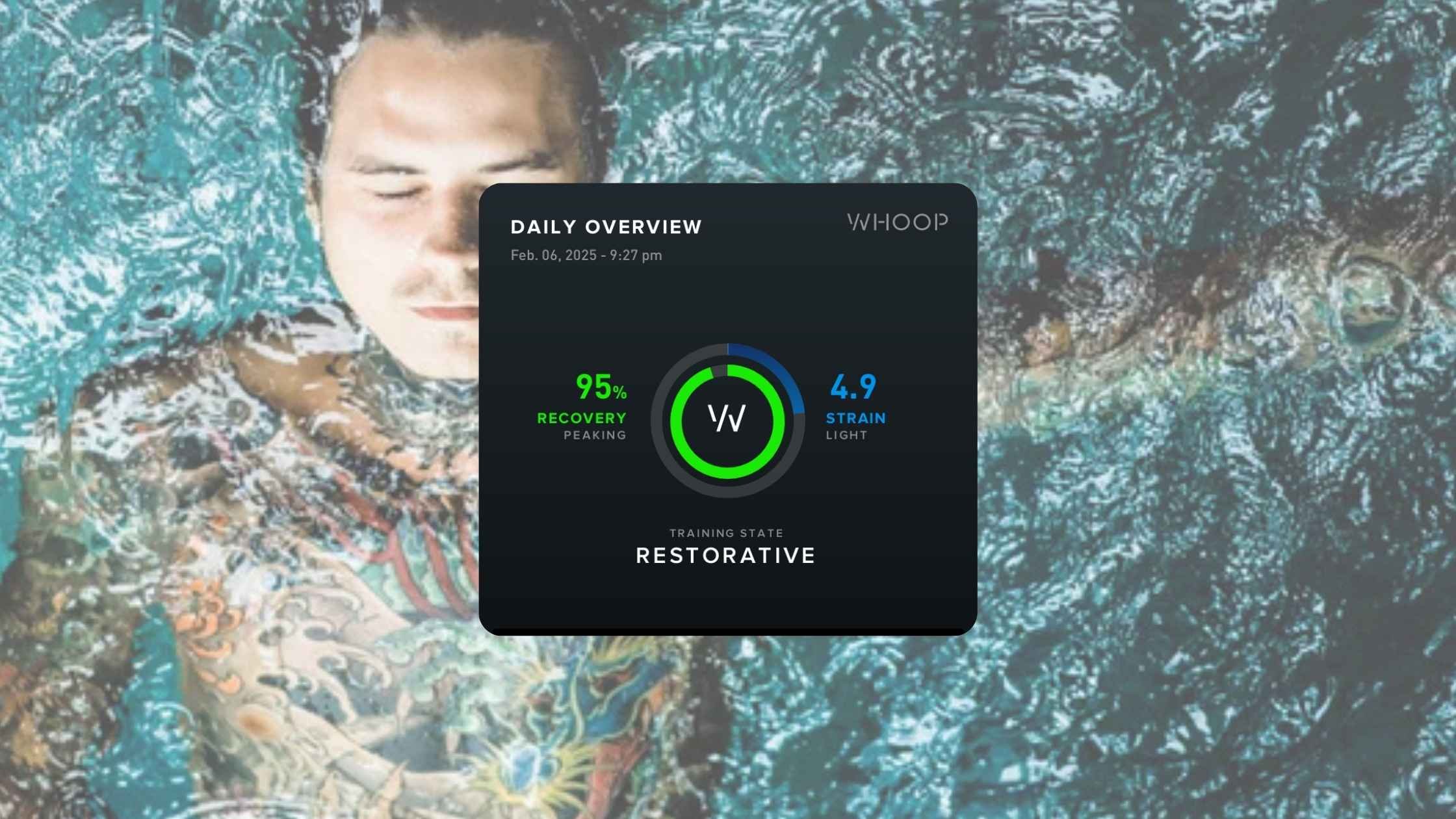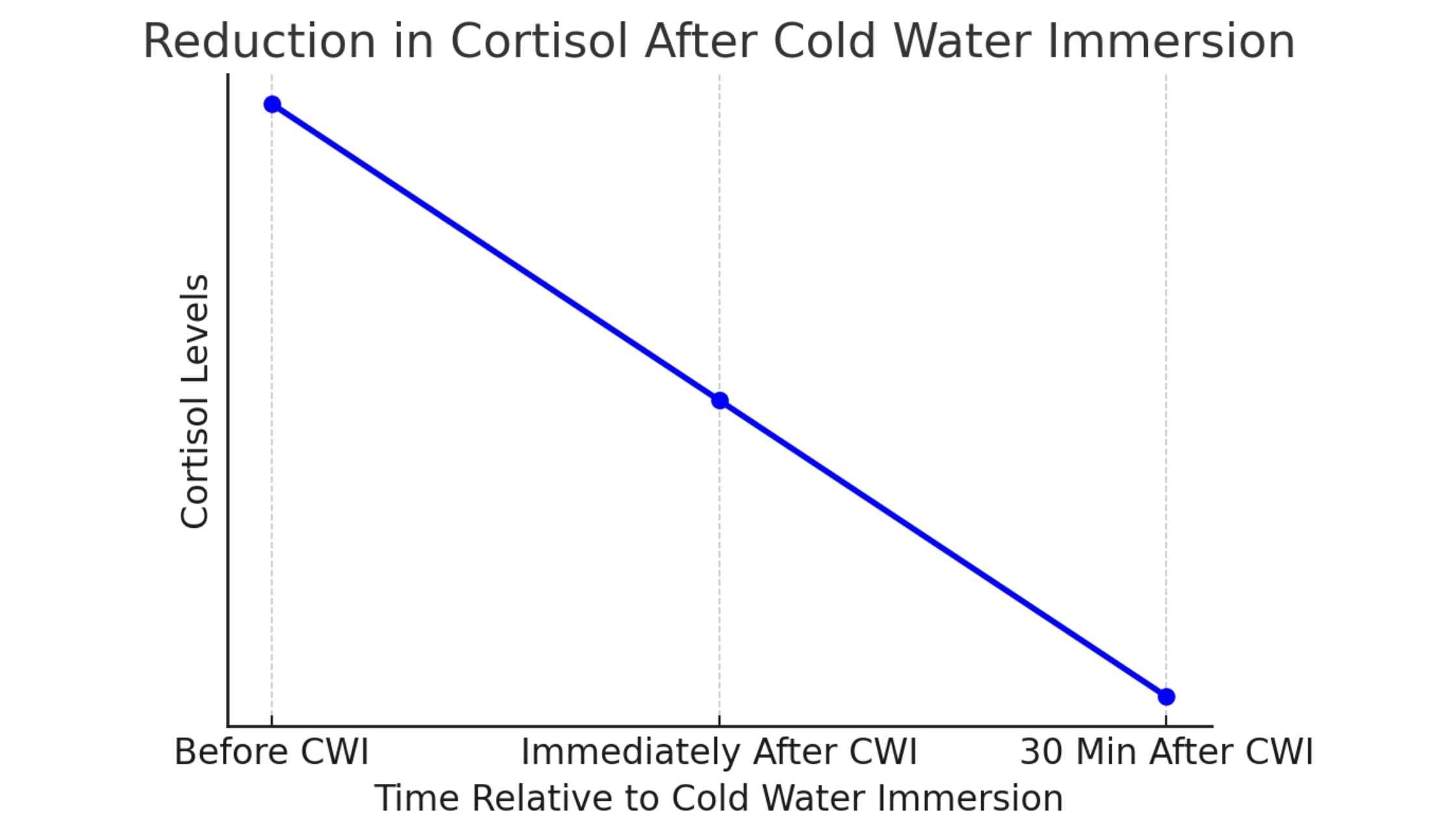Is Cold Water Immersion a Gateway To Better Sleep?
We all know how important sleep is for our energy, focus, and overall health. But with stress, busy schedules, and too much screen time, getting truly restorative sleep can feel out of reach.
What if there was a simple, science-backed way to calm the nervous system, lower stress hormones, and set your body up for deeper sleep?
Enter cold water immersion (CWI).
This isn’t just about toughness or mental grit, it’s about using the physiological response to cold exposure to regulate cortisol, body temperature, and the nervous system to work with your body’s natural sleep processes.
As Dr. Matthew Walker, author of Why We Sleep, puts it:
"Sleep is the single most effective thing we can do to reset our brain and body health each day—Mother Nature’s best effort yet at contra-death.”
An ice bath can support this reset process by reducing stress hormones, activating the parasympathetic nervous system, and helping the body transition into a state of deep rest. Below, we’ll explore how CWI enhances sleep quality, the science behind it, and other practical sleep hygiene tips to optimise your nightly rest.
The Science of Sleep and Temperature Regulation
Our bodies follow a circadian rhythm, a natural 24-hour cycle that regulates sleep, alertness, and body temperature. One of the key drivers of sleep is thermoregulation—as we prepare for sleep, our core body temperature naturally drops, helping us transition into deeper sleep stages.
Dr. Matthew Walker explains in Why We Sleep:
"As we fall asleep, the body orchestrates a remarkable feat: it deliberately drops its core temperature by about two to three degrees Fahrenheit. This drop is a key trigger for sleep onset."
Cold water immersion enhances this natural cooling process, signalling to the body that it’s time to wind down. This effect, combined with the nervous system response to cold exposure, makes CWI a powerful tool for sleep optimisation.
Cold Water Immersion and Cortisol: The Stress-Sleep Connection
Cortisol—the body's primary stress hormone—peaks in the morning to wake us up and should gradually decline in the evening to allow for sleep. However, in today’s high-stress world, elevated night-time cortisol is common, making it harder to relax.
Cold water immersion has been shown to rapidly reduce cortisol levels, creating the ideal conditions for deep, restorative sleep.
Here’s a simple graph illustrating how CWI influences cortisol:
Before CWI → Baseline cortisol levels remain high due to stress.
Immediately After CWI → A significant drop in cortisol occurs as the body reacts to the cold stimulus.
30 Minutes After CWI → Cortisol continues to decrease, reinforcing relaxation and preparing the body for sleep.
Dr. Walker emphasises the importance of lowering stress hormones before bed:
"If you want to fall asleep easily and stay asleep, you need a quiet mind. Cortisol, when elevated, is the enemy of deep sleep.”
By calming the stress response, CWI helps transition the nervous system from fight-or-flight mode to rest-and-digest mode, setting the stage for higher-quality sleep.
How to Use Cold Water Immersion for Better Sleep
Cold water immersion (CWI) isn't just about stepping into an ice bath and hoping for better sleep—it’s about timing, duration, and consistency to get the best results. If you want to optimise CWI for better sleep quality, faster sleep onset, and deeper rest, here’s how to do it effectively.
1. Timing: When Should You Do Cold Water Immersion for Sleep?
✔ 1-2 Hours Before Bed – The optimal window. This allows your body to experience the immediate stress response of cold exposure, followed by a rebound relaxation effect, where cortisol levels drop, and parasympathetic activity increases.
✔ Avoid Cold Immersion Right Before Sleeping – Jumping into an ice bath and immediately getting into bed might not work well for everyone. Cold exposure initially stimulates alertness, so you want to give your body time to transition from this alert state to a deeply relaxed one.
✔ Morning CWI is Great for Energy—Not Sleep – While morning cold immersion can help boost wakefulness, focus, and metabolism, it's not ideal for promoting sleep. It causes an increase in cortisol, which is beneficial for starting the day but not for winding down at night.
2. Temperature & Duration: Finding the Right Balance
✔ Ideal Temperature Range: 10-15°C (50-59°F) – This range is cold enough to trigger the thermogenic and nervous system response, but not so extreme that it causes excessive stress or discomfort.
✔ Duration: 1-3 Minutes – Research suggests that 1-3 minutes is sufficient to lower cortisol, activate the parasympathetic nervous system, and help with temperature regulation before sleep.
✔ Cold Showers vs. Ice Baths – If you don’t have access to an ice bath, a cold shower (2-3 minutes) can still provide benefits, though it may not be as effective at lowering core body temperature as it is more difficult to achieve a consistent and full body contact with the cold.
Final Thoughts
Using cold water immersion strategically can be an effective, natural way to improve sleep quality, reduce stress, and enhance recovery. However, it’s not just about sitting in cold water—timing, temperature, duration, and post-CWI habits all play a crucial role.
If you’re struggling with falling asleep, staying asleep, or feeling well-rested, try incorporating CWI into your evening routine and pairing it with strong sleep hygiene practices.
It may take a few sessions to dial in what works best for your body, but with consistency, you’ll likely notice deeper, more restful sleep—and stronger, more energised mornings.
Ready to take control of your sleep? Start experimenting with CWI and experience the benefits for yourself. ❄️💤


